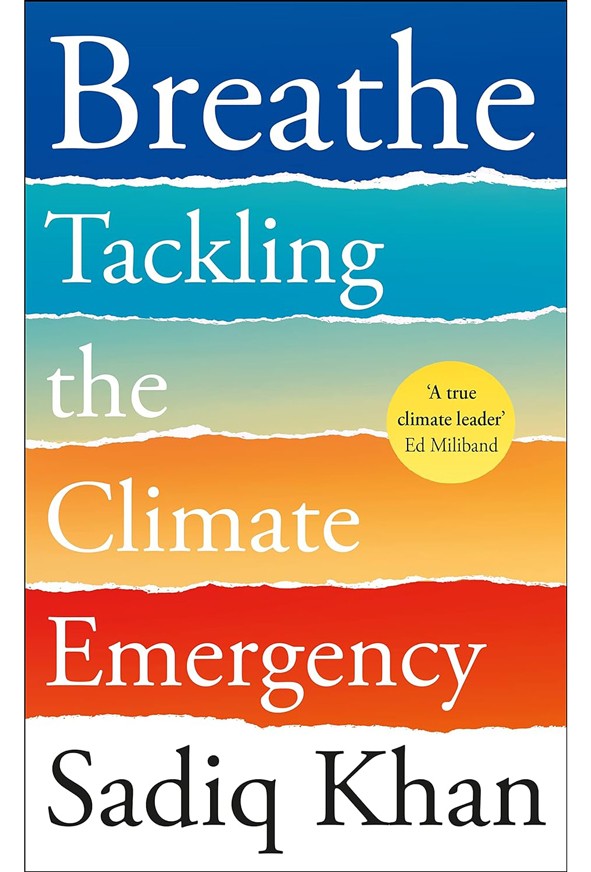
Breathe
Sadiq Khan Hutchinson Heinemann (2023)
In 2014, two years before Sadiq Khan ran for mayor of London, he ran in the London Marathon. Afterwards, he developed asthma — probably from breathing polluted air while training. This disturbing experience energized him, as mayor, to tackle pollution by launching an Ultra Low Emission Zone (ULEZ) in 2019, with substantial fees for the most polluting vehicles. It is controversial, but the ULEZ has helped to reduce roadside pollution in Central London by nearly half, he notes in his vivid memoir of becoming a climate activist.

The Complete Insect
Consultant ed. David A. Grimaldi Princeton Univ. Press (2023)
Without pollination by insects — there are an estimated 3.5 million species, of which 1.1 million are named — Earth would be desolate. Yet, of the 108 billion people who have ever lived, more than half died from insect-borne diseases, principally malaria. So insects have a “public relations problem”, admits entomologist and museum curator David Grimaldi, who fell for them as a boy in the 1960s. He and four fellow specialists share their fascination in this book enlivened with myriad colour photographs that both startle and delight.

Digital Empires
Anu Bradford Oxford Univ. Press (2023)
In regulating the digital world, governments have followed three policies, argues Anu Bradford, who studies law and international organizations, in her stimulating book. The United States favours market-driven “surveillance capitalism”; China, state-driven “digital authoritarianism”; and the European Union, a rights-driven approach based on “liberal democratic values”. Bradford describes these and considers their rivalries and the expansion of “digital empires”, speculating that in the democratic world, the EU model will win out.

Nobody’s Fool
Daniel Simons & Christopher Chabris Basic (2023)
The psychology of deceit is vast and complex — beginning with the mindsets of the deceiver and deceived. Psychologists Daniel Simons and Christopher Chabris focus on the deceived in their significant study of “the patterns of thinking and reasoning that make us all vulnerable”, as revealed by many examples of cheating, including in academia. For instance, why do Internet fraudsters continue to pose as rich Nigerians, even though this is well known to be a scam? To ensure they get responses only from those receptive to this claim.

Design for Resilience
Stuart Walker MIT Press (2023)
Solutions to climate change are widely assumed to require new technologies. Stuart Walker, a scholar of design for sustainability, disagrees, while accepting the importance of technology and science. Rather than pursue the modern love affair with novelty, he writes, designers should learn from stable earlier societies that “valued continuity, kept to practices that had stood the test of time, and lived within the parameters of their local environment”. His thoughtful book ranges from food to spirituality.
